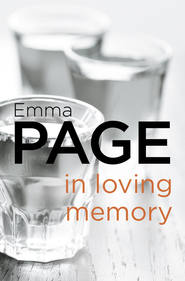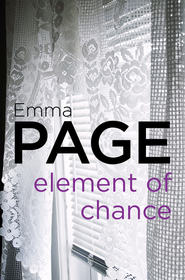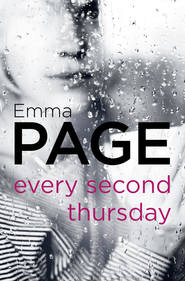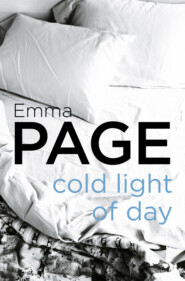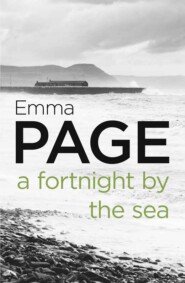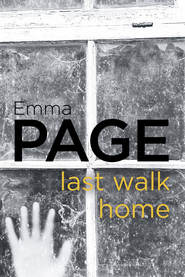По всем вопросам обращайтесь на: info@litportal.ru
(©) 2003-2024.
✖
Scent of Death
Автор
Год написания книги
2018
Настройки чтения
Размер шрифта
Высота строк
Поля
There was a brief silence, then Lockyear said with an air of frozen shock, ‘Both of them? Both the girls? Helen as well?’
‘I’m afraid so,’ the Chief said gently.
Lockyear drew a long quavering breath. He shook his head as if trying to clear it. ‘Let me get this straight,’ he said in a dogged way as if it might all somehow turn out to be no more than a piece of lunatic misunderstanding. ‘There’s no possible doubt about it? Both the girls are dead?’
‘I’m afraid there’s no doubt at all,’ Kelsey said. ‘They’re both dead.’ Lockyear stood looking at him with his arms hanging limply at his sides.
‘I’m afraid I must ask you to carry out an unpleasant duty,’ Kelsey said. Lockyear gave him an uncomprehending look. ‘I must ask you to come with us to the Cannonbridge mortuary, to identify the bodies.’
Lockyear’s mouth opened a little. He turned his head and stared down at the rhubarb crowns with their delicate rosy stems tipped with pale yellow leaves, frilled and crimped. He gave a single nod.
‘And we’ll need to ask you some questions,’ Kelsey said. ‘I’m sure you understand that. When you last saw the girls, what contacts you may have had with them since that time, who their friends and associates were, and so on. Any light you can throw on what’s happened. It will all take time, as I’m sure you’ll appreciate.’
Lockyear nodded slowly, he went on nodding for some seconds.
‘The post mortem will take place tomorrow morning,’ Kelsey said. Lockyear gave another slow, bemused series of nods. ‘You’ll probably want to call in at your house before we go to Cannonbridge,’ Kelsey added as Lockyear continued to stand there. ‘You may want to change your clothes, there may be something you need to see to. We can wait while you attend to it.’
Lockyear glanced down at his clothes. ‘Yes, I suppose I’d better change.’ He looked vaguely about. ‘I’d better clear up here.’ He covered the rest of the rhubarb, gathered up his fork and spade, trowel and hoe, without haste. He put them tidily away in the shed and locked the door, testing it afterwards to see that it was properly secured. All his actions were marked with care and deliberation, though his face still wore its drained, numbed look.
He didn’t speak to any of the other men working on the allotments as he walked away beside the two policemen; the men continued with their digging and forking as if unaware of the little party making its way past them. But when they reached the car and Lambert glanced back he saw that they had all now stopped working and were openly staring after them.
The drive to Thirlstane Street took place in silence. When they reached Lockyear’s shop it was lunchtime and the street was deserted. Lockyear was able to dart into his house unnoticed. The two men followed him inside. The air smelt stale and musty as if no one bothered to open the windows any more.
‘I’d like to take a look in Joanne’s room,’ Kelsey told Lockyear. ‘You can carry on with whatever you have to do.’
Lockyear led the way upstairs and opened a door on the right of the landing. ‘This is Joanne’s room,’ he said. ‘Helen had the room next door – it hasn’t been used since she left.’ He went off along the corridor to the bathroom.
Kelsey went into Joanne’s room and looked swiftly through her belongings. The room was adequately furnished, reasonably comfortable. All the soft furnishings looked in need of repair or renewal, as if nothing much in that line had been done for several years.
Joanne’s clothes were neatly arranged in a single wardrobe and a chest of drawers. Not a great deal of clothing and nothing very fancy; plain, functional, inexpensive garments. Beside the window stood a small bureau; none of the drawers was locked. The top drawer held an assortment of papers, methodically disposed. The letter from the aunt’s solicitor. A bundle of school reports: Joanne had been an industrious pupil, usually first in form at Art. Well behaved, presenting no problems; otherwise unremarkable. Photographs and snapshots, going back over a number of years, all with carefully written identifications. A wedding photograph of her parents, the bridegroom a resolute-looking young man, tall and slightly built, with a good forehead; the bride short and slight with a delicate, pretty face and shy smile, a great deal of dark hair dressed in curls and loops under her filmy veil.
A second wedding photograph, taken nine years after the first: the marriage of the girls’ mother to Arnold Lockyear’s father, the bridegroom grey-haired and bull-necked, with no discernible waistline but with a cheerful, good-tempered face alight with pride and love. His hand clasped the hand of his bride, even more slender and delicate-looking now in a dress and jacket of pale silk, a pretty little veiled cloche hat perched on her dark hair, still abundant, still glossy and wavy. She had an air of having passed through some harsh weathering process since she had last taken the arm of a bridegroom; the look was temporarily overlaid with an expression of tenuous optimism.
In front of the bridal pair stood two little girls in long dresses of Victorian print, their dark hair taken back under ribboned head-dresses, their hands clutching formal posies. Helen half a head taller than Joanne, both of them with ritual smiles fixed over an air of uncertainty.
Arnold Lockyear stood beside his father, with a space of a good couple of feet between them as if he had been determined to mark out the distance separating him from the rest of the family group. He wore a dark suit, a carnation prinked with greenery in his buttonhole; he looked straight ahead, his expression blank and unsmiling.
In the second drawer of the bureau were some paper-backed books: lives of various artists and a history of European art; a number of postcard-size reproductions of famous paintings; some copies of magazines devoted to the arts. And a portfolio of drawings and watercolours, all dated and signed: Joanne E. Mowbray, in a hand that grew progressively less rounded and childish as Kelsey turned the pages. Careful pencil studies of faces, animals, buildings; landscapes and townscapes in line and wash; heads of children in crayon and pastel. They looked competent enough to Kelsey; he wouldn’t have minded half a dozen on the walls of his flat.
In the lowest drawer he found a handful of trinkets, a few pressed flowers, some carefully preserved lengths of satin ribbon decorated with bows, such as might have been used to tie up presents. More photographs: Lockyear senior and his second wife with the two girls on a seaside holiday, all apparently enjoying themselves; Lockyear lying back in a deckchair with a straw hat shading his eyes, Joanne kneeling beside her mother’s chair, talking of her, both of them looking relaxed and carefree, Helen sitting beside them on the sand, absorbed in a book.
Kelsey closed the drawer and went next door into Helen’s room. Dusty sunlight streamed through the panes. A butterfly lay shrivelled on the window-ledge. The bed had been stripped, the mattress covered with an old cotton bedspread. The walls were bare, the wardrobe and chest of drawers empty except for a yellowed lining of newspapers bearing a date some five years ago. In the top drawer of the dressing table, under the lining, were a few blue beads and a torn piece of pink face tissue. In one of the small drawers was a child’s ring with a stone of red glass, and a motto from a Christmas cracker. Kelsey came out of the room and closed the door. He went slowly downstairs.
Sergeant Lambert was standing waiting in the hall; Lockyear was in the kitchen. He had washed, had changed into a dark suit and white shirt. He poured himself a cup of milk from the fridge. He held up the bottle and glanced at the Chief but Kelsey shook his head. ‘Ready when you are,’ he said.
Lockyear drained the milk in a single gulp. He washed his cup, locked up, and followed the two men out to the car.
He took his seat beside Kelsey in the rear. He made no attempt at conversation but kept his head averted, his elbow resting against the window, the outspread fingers supporting his forehead. After some little time Kelsey became aware that he was crying. The holiday traffic streamed towards them, family parties with excited children laughing and waving, dogs staring out through rear windows, blasts of music from radios as the cars swept past.
Some minutes later Lockyear drew a shuddering sigh. He sat up and took a handkerchief from his pocket. He dried his eyes, dabbed at his cheeks. He put the handkerchief away, drew several more trembling breaths and then fell silent. After a brief interval he said in a detached, explanatory tone. ‘They were both wilful, stubborn girls. There was no doing anything with them.’ Neither Kelsey nor Lambert made any reply.
Another minute or two slipped by, then Lockyear said, ‘I don’t suppose I understood either of them.’ He sounded as if he no longer expected any response but was simply expressing his thoughts aloud. ‘Hardly likely, I suppose, me being a bachelor.’ He said nothing more but sat in silence until the car halted outside the Cannonbridge mortuary.
Lambert got out and opened the car doors. Kelsey stepped out on to the forecourt but Lockyear didn’t budge. Lambert stooped and glanced in at him; he seemed to be making an effort to compose himself. Lambert said nothing but continued to look in at him. Lockyear suddenly jerked himself up and out of the car. He stood bracing his shoulders, drawing deep breaths, looking straight ahead.
‘Right then!’ he said with an attempt at briskness. ‘Let’s get it over with.’
When they came out into the mortuary corridor a few minutes later Lockyear was very pale. Tears ran down his face but he appeared unaware of them. He stood stranded in the middle of the corridor; he seemed at a total loss. Lambert put a hand under his elbow and steered him out of the building, down the steps, towards the car.
The Chief took his seat again in the back beside Lockyear. As the car pulled out Lockyear suddenly said, ‘This will finish me. It’ll ruin the business. I know it.’ He dropped his head into his hands.
‘I should have a word with your doctor when you get back to Martleigh,’ Kelsey said.
Lockyear made no reply. They reached an intersection and Lambert turned the car in the direction of the main police station.
CHAPTER 3 (#ulink_cc361102-b840-5327-ac30-36b01b909146)
Very little time elapsed between the local radio station’s broadcast of the news that Jason Cooney had been found safe and well and its first news flash of the discovery at Stoneleigh of the bodies of two young women. After the police had broken the news to Arnold Lockyear the radio station made further broadcasts, giving details of the two girls. Shortly afterwards the phone calls began to come in.
Among the hoaxers and the nutters were several genuine calls; the more important of these the Chief intended to deal with himself. His first call, a little after eight on Monday morning, was on a Mrs Huband, the landlady with whom Joanne Mowbray had lodged during her brief stay in Cannonbridge; Mrs Huband lived in a terrace close to the railway station.
She was outside, perched on a stepladder, busily cleaning her windows, when they arrived. A plump, motherly-looking woman in late middle age, greying hair twisted into a bun; her print overall was carefully laundered. She abandoned her bucket and wash-leather and took the two men into her spotlessly clean little house.
‘I was that upset when I heard it over the radio,’ she told the Chief, her eyes filled with distress. ‘I’d often wondered how Joanne had got on, if she’d managed to find her sister.’
She had had no other lodger during the few days Joanne had stayed with her. ‘She found it quite comfortable here, and quite convenient, but she couldn’t afford to stay more than a few days.’ She looked earnestly up at him. ‘It’s not that I charge a lot, I wouldn’t want you to think that, but it’s all I have to live on, that and the widow’s pension.’ She pressed her hands together. ‘Anyway, she said she had to be careful with her money, so I told her about the girls’ hostel. I advised her to go along there and see the Warden.’ The hostel was an old-established concern in a residential quarter of Cannonbridge, run by a charitable trust.
Kelsey asked if she knew what success Joanne had had in her enquiries about her sister.
‘At first she was very pleased with what she’d been able to find out,’ Mrs Huband said. ‘She thought she was making good progress.’ She’d been along to two secretarial agencies Helen had worked for and she’d made contact with other people who had known Helen or employed her services. ‘But on the Wednesday morning I could see she was looking a bit down in the mouth. It seemed that everyone she’d come across who’d known Helen had known her some time ago, she hadn’t been able to find anyone who’d known her recently. She was beginning to think Helen must have left this area. She was in two minds about staying on in Cannonbridge at all, she thought she could be wasting her time – and her money. Perhaps she should give up and go back to Martleigh. It depended what she found out that day.’
Joanne had been along to the hostel on the Tuesday afternoon to explain her position. The Warden had told her she could have a bed there any night as long as she let them know before seven-thirty in the evening; if it was later than that, then she would have to take her chance. ‘So she squared up with me on the Wednesday morning,’ Mrs Huband said. ‘She told me she’d call back for her things about four o’clock. I said not to be later than four because I had to go out – I help at the Darby and Joan club on Wednesdays.’ She drew a sighing breath. ‘She was a nice girl, not pushy or inconsiderate, though she was very determined.’
‘Was she back by four?’
‘Yes, she came in about ten to.’
‘Did you speak to her?’
‘I didn’t have much time, I had to rush off. I told her to make herself a cup of tea, and to be sure to drop the latch when she left. She was the sort you could go off and leave in the house without worrying about what she might get up to. She was as honest as the day. You can always tell.’
‘Did she tell you how she’d got on that day? If she’d decided what she was going to do?’
‘I asked her if she’d had any luck. She just said: Nothing special. She still hadn’t made up her mind about going back to Martleigh that evening. She said she had another two or three leads to follow up, she’d be going after them in the next hour or two, then she’d make up her mind.’
‘How had she done her hair that day?’
She looked startled at the sudden switch. ‘The same as every other day, just long and straight.’






